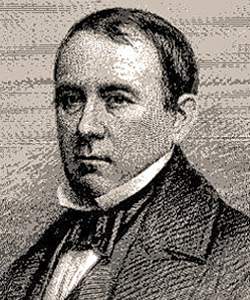James Campbell (American National Biography)
Scholarship
Campbell was determined that his [post office] department would be both efficient and self-supporting. To those ends, he terminated ineffectual postmasters, discontinued excessively expensive mail routes, fined delinquent contractors, and overhauled the department's accounting system. To Congress, Campbell proposed rate increases, the discontinuance of congressionally mandated discounts, and even the abolition of the franking privilege. He appeared indifferent to the fact that these initiatives offended powerful interests.
Among Campbell's innovations were the introduction of prestamped envelopes, perforated sheets of stamps to replace printed sheets, and the registry system for the shipment of valuables through the mails. The registry system, which held the individual postmaster responsible for any valuables handled, was a significant innovation that, in its essentials, has survived to the present.
Under Campbell's direction, postal service improved and expanded, but the department did not become self-supporting. Those affected by his cost-cutting measures resisted them, and Congress declined to enact the measures proposed. To his keen disappointment, annual subsidies continued throughout his tenure.
Among Campbell's innovations were the introduction of prestamped envelopes, perforated sheets of stamps to replace printed sheets, and the registry system for the shipment of valuables through the mails. The registry system, which held the individual postmaster responsible for any valuables handled, was a significant innovation that, in its essentials, has survived to the present.
Under Campbell's direction, postal service improved and expanded, but the department did not become self-supporting. Those affected by his cost-cutting measures resisted them, and Congress declined to enact the measures proposed. To his keen disappointment, annual subsidies continued throughout his tenure.
John F. Coleman, "Campbell, James," American National Biography Online, February 2000, http://www.anb.org/articles/04/04-00197.html.




